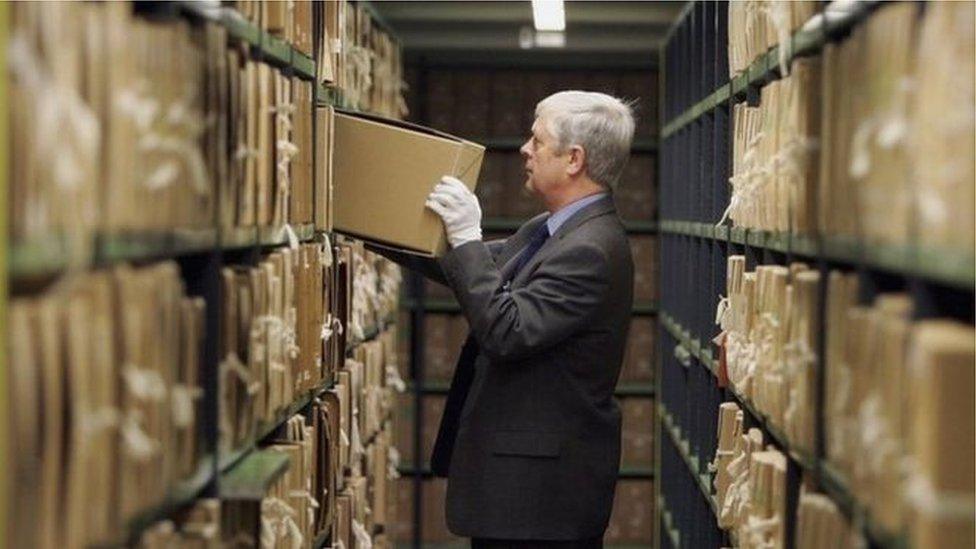Newspapers concerned over government's FOI process
- Published

Current and former editors of Britain's leading newspapers have expressed concern over the government's handling of Freedom of Information requests.
In an open letter, they have called for an investigation into a Cabinet Office unit - the Clearing House.
It is alleged to have profiled journalists and blocked FOI requests.
The government says it "remains fully committed to its transparency agenda", having "routinely" disclosed information "beyond its obligations".
The letter marks a rare show of unity by Britain's press, and comes after the website openDemocracy in November published a report, external showing response rates to FOI requests were at their lowest level since the Freedom of Information Act became law 20 years ago.
The Act was meant to give the public much greater access to information held by the authorities.
The report also alleges that although the government is not meant to know who has made a request, when it is sent to a unit in the Cabinet Office, known as the Clearing House, this often is not the case.
Now the editors, and several former editors, of the Times, Sunday Times, Guardian, Financial Times, Telegraph and Daily Mirror, have signed a strongly worded letter.
It calls for an investigation into the Clearing House, new measures to speed up Freedom of Information, and a bolstering of the Information Commissioner's Office, which oversees the process.
Separately, openDemocracy is working with law firm Leigh Day on a legal bid to force the Cabinet Office to reveal full details of how the Clearing House operates.
John Witherow, editor of the Times, described the alleged current process as a "disgrace", and said it was "a fundamental right of a free people to be able to see and scrutinise the decisions made on their behalf".
Guardian News and Media's editor-in-chief, Katharine Viner, said the government's handling of FOI's was "at odds with its global commitments to press freedom", as she called for a "clear commitment" to greater transparency and a well-funded information commissioner.
In a statement the government said a small Cabinet Office team "helps ensure a consistent approach to requests for information".
"This is especially important for complex FOI requests where we must balance the need to make information available with our legal duty to protect sensitive information and national security," it said.
The statement said it had released "more proactive publications than ever before", but it said the coronavirus pandemic "has had an impact on how quickly public authorities are able to respond to FOI requests".

How has the FoI Act been used?
Perhaps one of the best known revelations was the scandal over MPs' expenses that erupted in 2009 following a series of Freedom of Information Act requests.
It led to prison terms for five Labour MPs and two Conservative peers, and a slew of others had to repay money.
But since it came into force in 2005, the FOI Act has been a useful tool for journalists - as well as campaigners and members of the public - for a huge variety of stories, including:
In 2006, the Sunday Times unearthed documents that showed in the 1970s and 1980s ministers were trying to find the truth about the Loch Ness monster, external
In 2007, the Times learnt tax inspectors were being offered bonuses to encourage them to collect more money from individuals and businesses, external
In 2011, the Evening Standard revealed dozens of diplomats and embassy staff had been arrested over crimes including sex attacks and robberies, external but claimed immunity from prosecution
In 2013, the Daily Telegraph revealed that a book called How To Be An MP was the most borrowed book in the Commons library, external
In 2015, the Guardian published some of Prince Charles' letters sent to government ministers, external, following an FOI battle

Related topics
- Published2 January 2015
- Published17 October 2019
